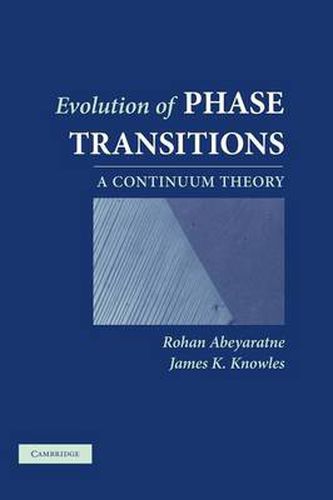Readings Newsletter
Become a Readings Member to make your shopping experience even easier.
Sign in or sign up for free!
You’re not far away from qualifying for FREE standard shipping within Australia
You’ve qualified for FREE standard shipping within Australia
The cart is loading…






This 2006 work began with the author’s exploration of the applicability of the finite deformation theory of elasticity when various standard assumptions such as convexity of various energies or ellipticity of the field equations of equilibrium are relinquished. The finite deformation theory of elasticity turns out to be a natural vehicle for the study of phase transitions in solids where thermal effects can be neglected. This text will be of interest to those interested in the development and application of continuum-mechanical models that describe the macroscopic response of materials capable of undergoing stress- or temperature-induced transitions between two solid phases. The focus is on the evolution of phase transitions which may be either dynamic or quasi-static, controlled by a kinetic relation which in the framework of classical thermomechanics represents information that is supplementary to the usual balance principles and constitutive laws of conventional theory.
$9.00 standard shipping within Australia
FREE standard shipping within Australia for orders over $100.00
Express & International shipping calculated at checkout
This 2006 work began with the author’s exploration of the applicability of the finite deformation theory of elasticity when various standard assumptions such as convexity of various energies or ellipticity of the field equations of equilibrium are relinquished. The finite deformation theory of elasticity turns out to be a natural vehicle for the study of phase transitions in solids where thermal effects can be neglected. This text will be of interest to those interested in the development and application of continuum-mechanical models that describe the macroscopic response of materials capable of undergoing stress- or temperature-induced transitions between two solid phases. The focus is on the evolution of phase transitions which may be either dynamic or quasi-static, controlled by a kinetic relation which in the framework of classical thermomechanics represents information that is supplementary to the usual balance principles and constitutive laws of conventional theory.